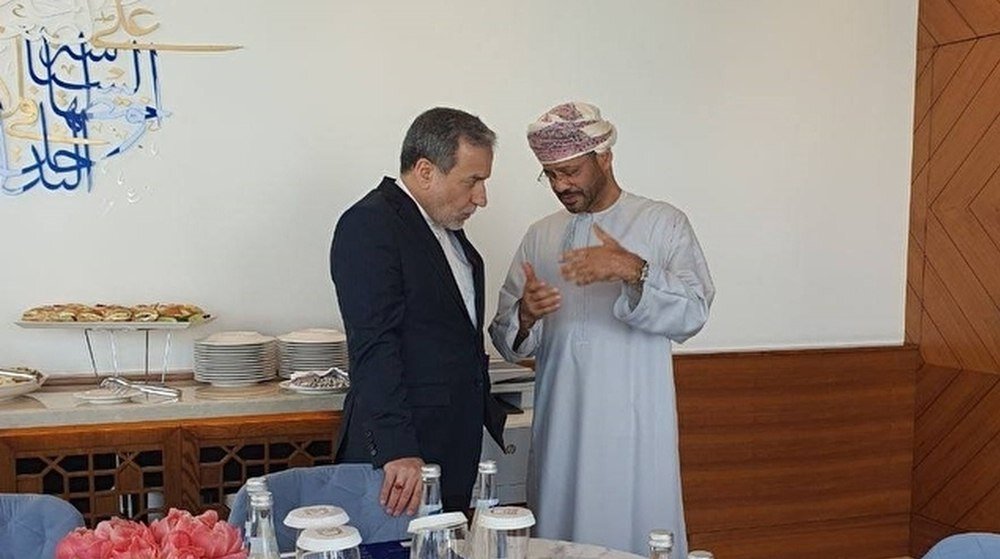Will Iran-U.S. nuclear talks fall victim to U.S. political turmoil and internal discord?

TEHRAN – The fourth round of indirect negotiations between Iran and the United States—set to take place on Saturday—has been postponed, with the Islamic Republic reiterating its firm and unwavering commitment to a diplomatic resolution.
Tehran continues to emphasize dialogue and justice in the face of escalating political instability and conflicting rhetoric from within the American leadership.
Iranian Foreign Minister Abbas Araghchi announced late Thursday that the talks in Rome were postponed in coordination with U.S. and Omani mediators for “logistical and technical reasons.” However, the broader picture points to intensifying internal discord in Washington, raising questions about the seriousness and coherence of the U.S. approach.
“There is no change in Iran’s determination to reach a negotiated solution,” Araghchi wrote on X. “In fact, we are more determined than ever to secure a just and balanced deal—one that ends unjust sanctions, guarantees the peaceful nature of Iran’s nuclear program, and ensures that the rights of the Iranian people are fully respected.”
Foreign Ministry spokesman Esmaeil Baghaei underlined Iran’s principled approach, describing the negotiations as “result-oriented” and fully aligned with international law. He stressed that Iran had entered talks in good faith and laid out clear legal frameworks for the peaceful use of nuclear energy and the lifting of unlawful, inhumane sanctions.
Since April, three rounds of negotiations mediated by Oman have been held in Rome and Muscat, with both sides initially praising the talks as constructive.
But while Iran maintains a unified diplomatic front, the American political scene is sending mixed signals.
In a major shake-up, U.S. President Donald Trump on Thursday dismissed National Security Adviser Mike Waltz and named Secretary of State Marco Rubio as his interim replacement. Trump announced via social media that Waltz would instead be nominated as U.S. Ambassador to the United Nations, calling him a “patriot” who “put America’s interests first.”
The reshuffle adds to mounting uncertainty over the direction of U.S. foreign policy, especially as Rubio, now acting in a dual role, used his first remarks following the announcement to lay out hardline preconditions for nuclear negotiations. “Iran must walk away from uranium enrichment and long-range missile development,” Rubio said. “And it must accept American inspections of its facilities.”
Adding to the rising hostility, U.S. Defense Secretary Pete Hegseth took to social media to issue threats against Iran, repeating unfounded allegations of Iranian support for the Yemeni Resistance. Ignoring Washington’s own military and political failures in the region, Hegseth warned, “You will pay the price at a time and place of our choosing.”
Further complicating the picture is Steve Witkoff, a former real estate attorney and investor now acting as Trump’s special envoy to West Asia. Witkoff has reportedly taken on an unofficial role as Trump’s personal channel to Russian President Vladimir Putin. Hardliners within the Trump administration are not exactly his fans, sources tell the Tehran Times. Rubio, particularly, believes that instead of pursuing a deal with Iran, a mission Trump has entrusted Witkoff with, Washington must launch military strikes against the country.
A different group of American officials and former dignitaries, not happy with the nuclear negotiations, is the Democrats. They do not want Trump to reach a deal with Iran after he unraveled Barack Obama’s nuclear pact with the country in 2018, as previously revealed by the Tehran Times.
Meanwhile, the Tehran Times reported Thursday that IAEA Director General Rafael Grossi has been trying to negatively impact the talks by delivering “misleading” reports about Iran’s nuclear program to the U.S., acting under pressure from European powers.
By presenting misleading reports to the U.S., Grossi aims to create a false impression about the peaceful nature of Iran’s nuclear activities. He also appears to be seeking a political role for himself in the negotiation process.
Despite the provocations, diplomatic confusion, and changing faces in Washington, Iran remains committed to dialogue, legality, and diplomacy. “The Islamic Republic will continue its path with strength and determination,” Baghaei said on his X account.
Leave a Comment